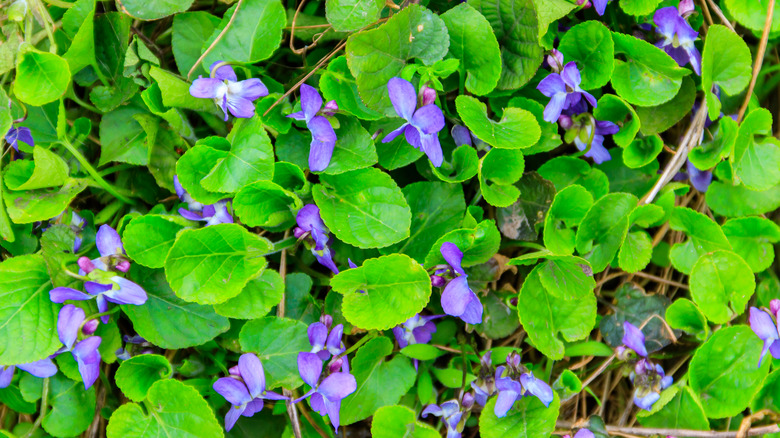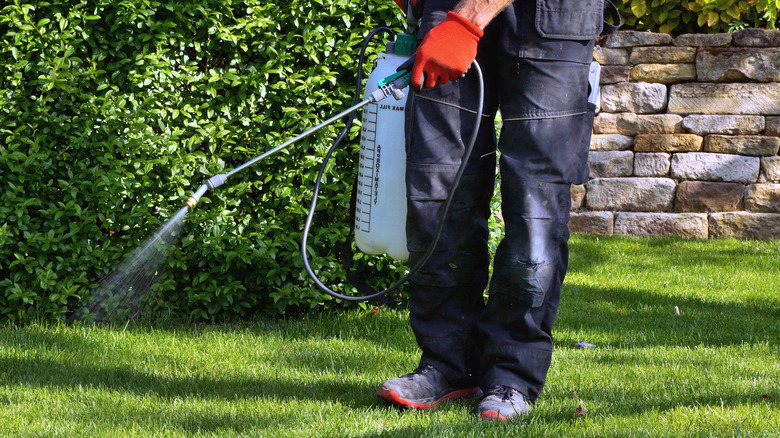The Best Method To Get Rid Of Wild Violets If They Take Over Your Lawn
Because wild violets are native plants with some medicinal benefits, many people believe they shouldn't be pulled from the garden; however, those of us who have had multi-year wars with these hardy little flowers know that you should deal with wild violets as quickly and fiercely as possible. This is because violets are actually extremely fast-growing and sneaky weeds that can take over your entire yard before you realize it. And, when it comes to wild violets, the quicker you take care of them the easier your battle will be. That is, unless you are okay with having a yard full of waxy broadleaved flowers instead of grass (to each their own).
The reason that violets are so difficult to get rid of and hated by gardeners and homeowners alike is that hand pulling doesn't work because these flowers spread through strong underground root systems and can easily come back unless the entire root is removed. On top of this, many weed killers don't work on violets because they have waxy leaves that prevent the absorption of herbicides. Luckily, there is one herbicide that actually works well against violets and can even kill the flowers without harming your grass — triclopyr. Triclopyr is a selective herbicide that effectively kills only broadleaf plants (like violets, ground ivy, dandelions, and chickweed) while leaving your grass alone, making for the perfect tool to manage a violet infestation.
How to use triclopyr to kill wild violets
The first step in using triclopyr to kill wild violets is to find a weed killer that includes the aforementioned chemical as one of the main ingredients. Some weed killers that claim to work against wild violets contain dicamba, carfentrazone, sulfentrazone, or quinclorac — but, while these chemicals may offer some benefits against wild violets, they aren't as effective as triclopyr.
Once you've found a broadleaf weed killer with triclopyr as the main ingredient, you can go ahead and start treating your yard. The best time to treat violets with herbicide is in the fall as they are beginning to go dormant before winter. If you have many wild violets in your yard, you may need to apply herbicides multiple times during the growing season over a few years to get rid of the pesky little purple flowers for good.
Furthermore, once you've successfully killed the violets in your yard, you will need to properly maintain your lawn to prevent them from coming back years down the line. To do this, it is important to make your turf grass grow as thick and healthy as possible by only watering it two to three times a week so that your lawn grows deep roots. You should also make sure you are mowing your grass to the correct height (and not too short) so that it smothers weeds before they have a chance to grow.

